Unlocking Success Through Personal Development
Welcome! I’m Ryan Zofay, a renowned personal development coach, bestselling author, and inspirational motivational speaker. My life story is a testament to the transformative power of resilience through personal development practices.
Personal development is more than a trendy word. It is a journey that can help you reach your full potential. This journey can lead you to a more fulfilling life through growth and development. As someone who has spent my life on this journey, I can tell you that personal development is not a quick fix. It’s a continuous, intentional practice of growth, self-discovery, and resilience.
When I first embarked on my own personal development journey, I didn’t fully understand the depth of what it entailed. I thought it was simply about setting goals and achieving them. But over time, I saw it’s much more than that. It’s about being the best version of yourself. This is not just for you, but also for the people around you and the world.
As a personal development coach, I teach modern personal growth strategies. I also share valuable lessons from my own life. I believe in the unlimited potential within each of us and am passionate about helping you tap into yours.
Success, whether in your personal life or professional career, doesn’t just happen by accident. It’s a deliberate process shaped by one thing—your commitment to personal development. We’ll explore how this growth mindset can lead to increased happiness, enhanced productivity, and a deeper sense of purpose. I will give you valuable tips, strategies, and tools. These will help you easily add personal development to your daily life.
Jump To
Table of Contents
Join Personal Development Training Workshops
Feeling like I don’t know what to do with my life? There was a time in my life when I felt stuck, as though I was living far below my potential. I knew I wanted more, but I didn’t know how to get there. Everything changed when I committed to personal growth. By focusing on establishing personal development goals, my life changed in amazing ways. I found more fulfillment, success, and clarity by implementing a personal development plan to guide my success.
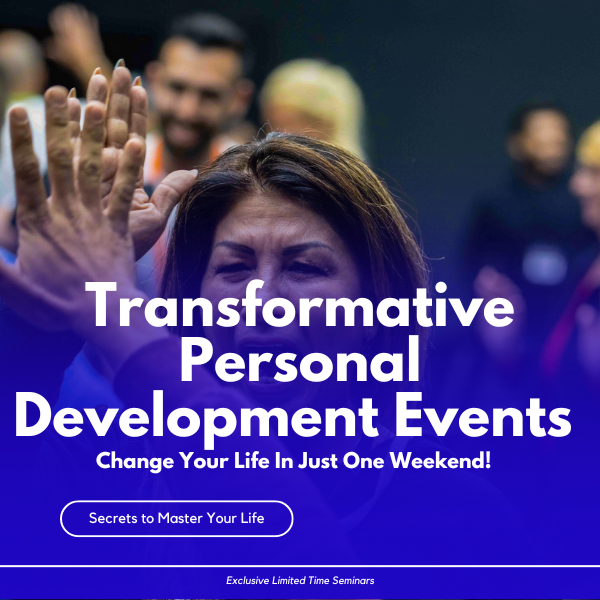
Professional and Personal Development
Personal development is not just a luxury—it’s a necessity. Reaching your potential is vital for a happy life. It doesn’t matter if you are an experienced leader, a new entrepreneur, or someone who enjoys self-improvement. This personal development guide and its resources are here to help you hone your skills. You can set important life goals and make better choices for your future. Through personal development and life coaching, we can gain a deeper understanding of ourselves and our potential. We can utilize our strengths to overcome, adapt, and improve in the face of challenges.
Now, let’s discuss the five areas of personal development, what they are, how to apply them, and what strategies and tips to use. We’ll begin with what is personal development, Maslow’s Hierarchy of Needs for personal development , and provide personal development examples you can readily visualize.
Personal Development Goals’, ‘Personal Growth‘ and and ‘Self Improvement’ are three core areas that overlap and interweave with personal development training. It’s recommended that you read those guides in conjunction with this blog on personal development.
What is Personal Development?
At its core, personal development and self-improvement are about consciously improving yourself. By building skills, mindset, and habits while continuously improving and deepening your understanding of who we are. It’s not only about reaching goals. It’s about being the best version of yourself. Reflect on your strengths and weaknesses. Take steps to grow in every area of your life.
When we work on personal growth goals, we take active steps to grow. This includes self-reflection, setting SMART goals, and building new self growth skills. Personal development helps you grow. It can enhance your leadership skills, build emotional resilience, and strengthen your relationships. It also enables you to discover a deeper sense of purpose. Personal development is the bridge between where you are now and where you want to go.
This journey is deeply personal, and it looks different for everyone. For me, it’s been a path of self-awareness, goal-setting, and learning to embrace challenges as opportunities for growth.
personal development Meaning Continued
Personal development is a lifelong journey. It helps people assess their skills and qualities. It also allows them to set life goals and reach their full potential. This guide is designed to help you identify the skills necessary for setting meaningful life goals. By enhancing employability prospects and boosting confidence, personal development leads to a more enriching and higher-quality life.
Still, wondering what is personal development? As a personal development coach, I want to say that personal growth takes time. You do not learn these skills overnight. It is not a one-size-fits-all approach, and your journey will differ from that of the next person. You must put in the work and find what works best for you. Whether that involves working with a personal development coach or attending workshops from home, you must put in the time.
Abraham Maslow’s Self-Actualization for Personal Development
One of the most compelling theories in personal development is Abraham Maslow’s process of self-actualization. According to Maslow (1970), every individual has an intrinsic need for personal development, which unfolds through self-actualization.

Maslow’s Self-Actualization
Understanding Maslow’s Self-Actualization
Self-actualization is about striving to become everything you’re capable of being. It involves self-fulfillment and realizing your full potential as a unique individual. Maslow believes this process is closely linked to our ability to connect with our feelings. It helps us experience life fully and stay focused on our goals.
Maslow’s Hierarchy of Needs
Maslow’s Hierarchy of Needs
The extent to which we can develop depends on meeting particular hierarchical needs. This hierarchy suggests that a higher level of needs can be addressed only when a lower level is satisfied. Here’s a breakdown:
- Physiological Needs: Basic survival needs include food, drink, sex, and sleep.
- Safety Needs: Physical and economic security.
- Love and Belongingness: Fulfilling relationships and social connections.
- Esteem Needs: Self-esteem and worth are closely tied to self-empowerment.
- Cognitive Needs: Understanding and curiosity, including a search for meaning.
- Aesthetic Needs: Appreciate beauty, symmetry, and order.
- Self-Actualization: The pinnacle of personal development, where one seeks to become the best version of oneself.
Maslow (1970, p.383) emphasizes that everyone must see themselves as competent and autonomous individuals with limitless growth potential.
Maslow’s Self-Actualization for Leaders
Maslow’s Self-actualization for leaders and self-improvement enthusiasts
Self-actualization is crucial for leadership professionals, team leaders, and individuals seeking self-improvement. It is vital for those seeking personal and professional development through personal development training or personality development classes. Going to these classes, or finding some close by, can give you the skills and knowledge to move up in this hierarchy.
The Role of Coaching and Training
Personal development, life coaching, and training help you understand your current position in Maslow’s hierarchy. They also show you the steps to reach self-actualization. Inspirational personal development quotes and affirmations can be daily motivators to keep you on track. They’ll help you see yourself as a competent and autonomous individual with limitless growth potential.
Planning for personal empowerment involves making positive and practical choices that align with your future goals. While early life experiences shape who we are, personal development is not confined to our formative years. Growth and self-improvement are continuous processes that evolve throughout our lives.
We’ll outline a more precise definition of personal development to help you find what works best for you. The most common definition is that it includes activities that help a person grow and reach their full potential. It builds skills, improves job prospects, enhances quality of life, and helps achieve dreams and goals. To simplify and better define personal development, we can break it down into five key areas: mental, emotional, physical, social, and spiritual.
Benefits of Personal Development
Why Does Personal Development Matter?
Personal development has the power to transform every area of your life. Here are just a few ways it can make a difference:
- Clarity in Goals: Setting personal development objectives gives your life direction and a deeper sense of meaning. You’re no longer drifting aimlessly; you’re purposefully moving toward what truly matters to you.
- Better Relationships: By improving your emotional intelligence, communication skills, and empathy, you can strengthen your connections with others. This helps create more satisfying personal and work relationships.
- Career Success: Personal growth often leads to professional development. Enhancing leadership skills and cultivating resilience can lead to promotions, new opportunities, and increased job satisfaction.
- Happiness and Fulfillment: Pursuing self-improvement can enhance your mental well-being. It helps you feel more confident, capable, and happy in daily life.
Personal development isn’t just about success—it’s about creating a life that feels authentic, balanced, and meaningful.
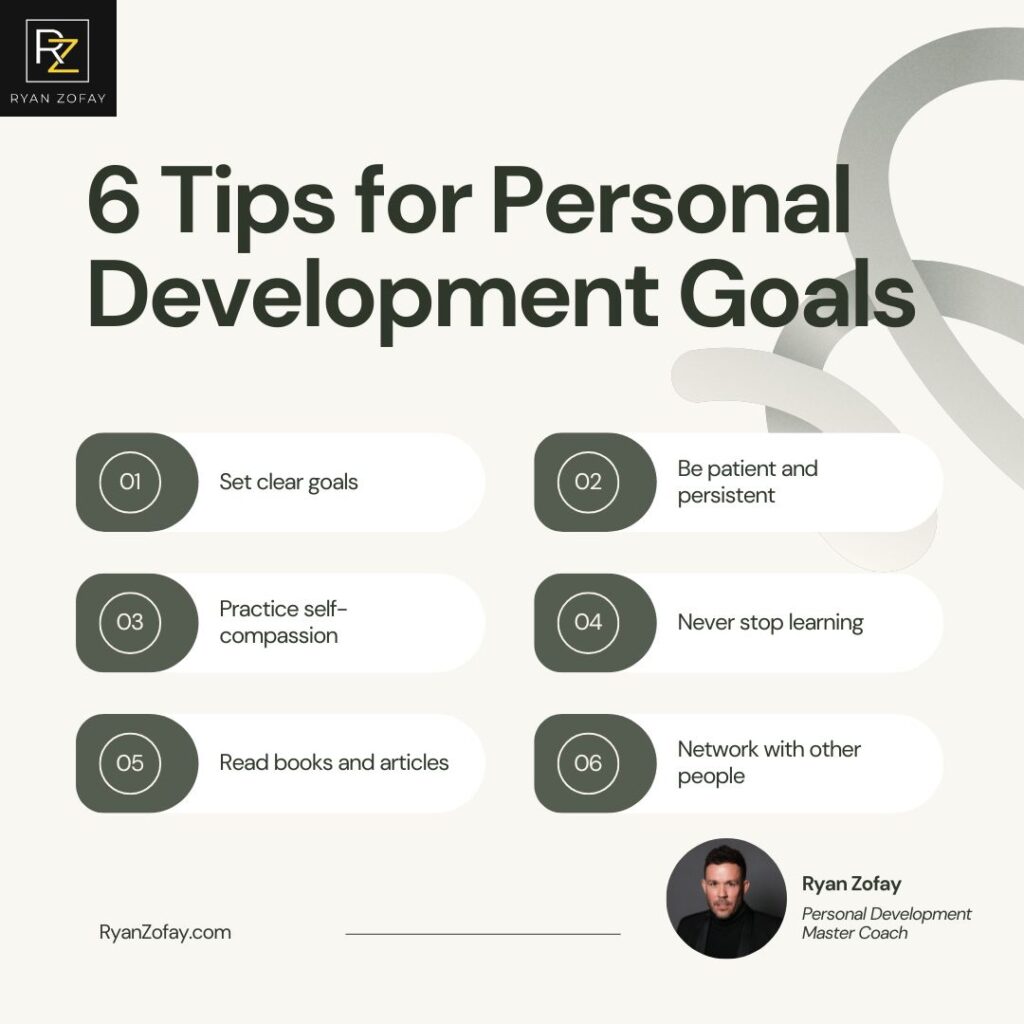
A Lifelong Journey
Continuous learning is a lifelong journey. Learn how to set and reach your goals. Discover your full potential. Find inspiration from quotes about personal growth and self-development. If you want to improve yourself through life coaching, there are resources available. You can also find personality development classes near you. These resources can support you on your journey.
5 Steps to Managing Personal Development
As a personal development trainer, I am excited to help you improve your personality and career path. Managing your personal growth is important. This is true for both new entrepreneurs and experienced leaders. It helps you reach your full potential.
Step 1
Step 1: Refining Your Vision
Personal development is not just a hobby; it’s a strategic approach to achieving greatness. While it can be enjoyable, having a personal vision is essential for long-term motivation. Ask yourself where you want to be in the coming months or years and, more importantly, why you want to get there. This vision is the compass that guides your personal and professional development.
Check out our resources on setting Personal Development Goals and SMART goals for deeper insights.
Step 2
Step 2: Planning Your Roadmap
Having a clear vision allows you to lay out a roadmap. A personal development plan serves as a GPS, outlining the steps to achieve your goals. While not mandatory, it brings structure and realism to your ambitions.
If you find pinpointing development areas challenging, our Personal SWOT Analysis and Identifying Areas for Improvement guides can be invaluable.
Step 3
Step 3: Starting the Improvement Process
There are myriad ways to learn and grow. Improving performance techniques explores methods such as expertise transfer to ensure your learning is practical and tailored to you. Also, knowing your learning preferences and styles can help you find the best ways to grow and improve yourself.
Step 4
Step 4: Recording Your Personal Development
Documenting your progress is crucial. Keeping a record allows you to reflect on your achievements and challenges, fueling motivation for future growth. Consider maintaining a learning log or journal to capture your personal growth and self-development quotes that inspire you.
Utilize reflective practices and journal to document and ponder your developmental milestones effectively.
Step 5
Step 5: Reviewing and Revising Personal Development Plans
Learning is cyclical, not linear. Regularly review and revise your development plans using Kolb’s Experiential Learning Cycle. This reflection helps make sure your activities match your goals. It also allows you to adjust as needed. This keeps your personal and professional growth relevant and achievable.
Kolb’s Experiential Learning Cycle
Kolb’s Experiential Learning Cycle is a framework for understanding how people learn. It consists of four stages:
- Concrete Experience: This stage involves experiencing something new or encountering a new situation.
- Reflective Observation: You reflect on your experience and try to make sense of it.
- Abstract Conceptualization: You form new ideas or theories based on your reflections.
- Active Experimentation: You apply your new knowledge to new situations and test your theories.
This cycle can be applied to personal development in several ways:
- Setting goals: By thinking about your experiences, you can find areas to grow and set clear goals.
- Learning new skills: You can use the cycle to learn new skills by practicing, reflecting on your performance, and making adjustments.
- Overcoming challenges: By understanding how you learn, you can develop strategies for overcoming obstacles and challenges.
- Building self-awareness: The cycle can help you become more aware of your strengths, weaknesses, and learning styles.
Kolb’s Experiential Learning Cycle is a valuable tool for personal development. By understanding how you learn, you can become a more effective learner and achieve your goals.
Inspire & Transform
As a leading personal development coach, I bring experience and insight to help you unlock your potential. Discover personal and professional development strategies, explore my best personal development podcasts, and immerse yourself in personality development training that aligns with your goals. Use my advice to turn your dreams into tangible achievements. This will lead you to a fulfilling and successful life.
Start your personal development adventure today and confidently step into a future where your potential is unlimited.
Personal development is a continuous process of self-improvement that involves cultivating skills, understanding oneself, and achieving goals. It encompasses various areas of life, including career, relationships, and personal growth.
Critical Areas for Individual Development:
- Skill Enhancement: Develop existing talents or acquire new ones.
- Financial Management: Learn effective money management strategies.
- Goal Setting and Achievement: Create and execute plans to reach your objectives.
- Self-Awareness: Understand your strengths, weaknesses, and values.
- Confidence Building: Overcome challenges and believe in your abilities.
- Relationship Building: Foster strong connections based on honesty, ethics, and values.
The 4 P’s of Personal Development
- Purpose: Understanding your mission and values.
- Passion: Identifying your areas of interest and enthusiasm.
- Plan: Create a structured approach to achieve your goals.
- Persistence: Maintaining focus and determination in the face of challenges.
Strategies for Personal Growth:
- Value Exploration: Identify what truly matters to you and align your actions accordingly.
- Stepping Outside Your Comfort Zone: Embrace new challenges and experiences.
- Learning from Others: Seek inspiration and guidance from role models and mentors.
- Ethical Conduct: Uphold honesty and integrity in your interactions.
- Work Ethic: Demonstrate dedication, passion, and commitment to your professional endeavors.
Focusing on these areas and using these strategies can help you start a rewarding growth journey and reach your goals.
Ryan Zofay’s Personal Development Tips
Wondering how to fit individual development into your busy day? Here are some easy, actionable steps:
Mental:
- Tune in: Listen to podcasts during commutes or while multitasking.
Social:
- Connect: Invite a colleague or friend for lunch and practice active listening.
Spiritual:
- Find your center: Start your day with a few minutes of prayer or meditation.
Emotional:
- Reflect: Journaling can be a powerful tool for self-discovery. Use prompts to explore your thoughts and feelings.
Physical:
- Efficient workouts: Short, effective workouts can fit even the busiest schedules. Incorporate physical activity into your daily routine.
Remember, small steps can lead to significant changes. Start with these simple habits and gradually incorporate more individual development practices.
By following my personal development steps, tips, and strategies, you are investing in your future. This future holds great potential and promise for success. Remember, personal growth is a lifelong commitment, but with dedication and the right tools, the possibilities are limitless. Ready to take the next step in your personal development? Start today with our personality development training classes and explore my best personal development coaching secrets podcasts for entrepreneurs for inspiration.
Top 5 Personal Development Skills
I’m elated to share my insights on the “Top 5 Personal Development Skills” that can truly transform your life. During my journey from homelessness to becoming a successful entrepreneur, I learned that personal development skills are key. These skills are essential for lasting success and fulfillment. These skills have helped me overcome obstacles and empowered me to inspire others on their paths to growth.
I’ll highlight five key personal development skills that can elevate your life and career. Whether you want to enhance your communication, boost your emotional intelligence, or improve your time management, these skills are foundational for anyone committed to personal growth. Remember, investing in yourself through developing personal development skills is one of the best decisions you can make.

Let’s explore how these skills can pave the way for your success:
Mindset
#1 Mental Skills
We must begin by cultivating a healthy and happy mindset before considering the other areas of personal development. Allowing yourself to continue learning and absorbing information will ultimately improve your relationships, education, and career. Mental development and growth are never-ending areas that you can continue to improve throughout your life.
A growth mindset is your greatest ally in personal development. It’s about seeing challenges as opportunities to learn and grow, rather than as obstacles. This shift in perspective has helped me bounce back from setbacks and keep pushing forward.
One tool that can aid in mental growth is reading personal development books. You have many choices when looking for books that interest you. You might like something factual and concise, like The Seven Habits of Highly Effective People by Stephen Covey. Or something more down-to-earth, like You Are a Badass by Jen Sincero, which is more of your cup of tea. Either way, there are endless options.
As important as it is to expand your mind for personal development, you also have to give your brain a chance to relax. Try not to burn yourself out by cramming as much information as fast as possible; allow yourself to unwind. Maybe it’s writing in a journal or watching the next episode of Modern Family. Taking breaks and decompressing is just as crucial as growing mentally.
Mastering Emotional Intelligence
#2 Emotional and Self Awareness Skills
Reading a book or attending a seminar is a simple way to expand your mind. It’s truly by the books. When it comes to learning how to be an emotionally intense person, it can quickly get just that: emotional. Learning to control your emotions and not let them control you can be a challenging task.
It is essential to share your emotions rather than keeping them bottled up. On the contrary, allowing yourself to get overly emotional can be a negative. We must find a happy and healthy medium, which is part of our growth journey. It will take time and practice, and it is something we will continue to learn and master.
Understanding yourself is the foundation of personal development. This means taking a hard look at your values, beliefs, strengths, and weaknesses. When I became more aware of myself, I could align my actions with my core values. This brought clarity and purpose to my life.
Mastering Communications
#3 Social Skills
Communication and sociability seem like terms from the past, given the constant barrage of technology being pushed on us. Talking in person is becoming increasingly difficult for each generation in a digital world. This world is filled with acronyms like ‘lol’ and ‘brb’. More and more people have social anxiety and would rather hide behind their screens.
Learning and improving our social skills are crucial for our personal growth. Better social skills and the ability to communicate effectively with people can benefit all aspects of life. Giving a presentation at school or conducting a job interview requires social skills.
This area of our blossoming can easily be overlooked because everyone learns to talk at a young age. As I mentioned, technology has changed how we communicate, both face-to-face and negatively. Getting out there, meeting new people, and engaging in conversation will help you improve your social skills.
Deep Rooted Beliefs
#4 Spiritual Skills & Beliefs
Spirituality and beliefs can look different from person to person. Many people associate religion with spirituality or spiritual growth, but these are two distinct concepts. Learning to be more spiritual means building a deeper connection with the world around us.
Meditation and yoga can improve spirituality and bring peace. Some may turn to religion and prayer to deepen their spirituality, while others may turn to nature. Whatever helps you clear your mind and find peace will ultimately aid in your evolution.
Healthy Physical Habits
#5 Physical Development
That brings us to our last area of personal evolution: physical development. Growing a healthy mind goes hand in hand with developing a healthy body. Once we begin improving our mindset, we must fuel our physical bodies accordingly.
This can entail various things, such as exercising, modifying our eating habits, and getting sufficient sleep. While this may seem straightforward and instinctive to most, there is more to it. Take action. Visit your doctor for a yearly checkup. Follow a good skincare routine. Allow your body to relax. These are all critical steps for building a healthy and strong body.
To put it all into perspective, personal development is a continuous process. It is not something you will master in days, months, or years. You must commit to it and continue to improve and grow throughout your life. Focusing on the five areas of personal development will help you achieve your goals more effectively.
Popular Personal Development Goals
The desire and interest for constant self-improvement and personal growth are high. Whether you’re a professional, an entrepreneur, or someone passionate about self-improvement, setting individual development goals can significantly enhance your life. We’ll explore the top 10 popular personal development goals for work and improving your overall life, complete with examples and actionable tips to help you create your personal growth and development plan.
The Importance of Development Goals
Individual development goals are essential to a fulfilling life. They provide direction, help you measure progress, and keep you motivated. Achieving these goals can lead to better career prospects, improved relationships, and a higher quality of life.
What Are Personal Development Goals?
Before we begin, it’s crucial to understand personal development goals. These are specific objectives you set for yourself to improve various aspects of your life. They can range from enhancing professional skills to building better habits and improving emotional intelligence.
Personal Growth and Development Plan
Crafting Your Personal Growth and Development Plan
To create a personal growth plan, first identify your goals. Next, understand your strengths and weaknesses. Finally, outline clear steps to take. Here’s how you can start:
- Self-Assessment: Identify areas of self-improvement.
- Goal Setting: Define clear and achievable objectives.
- Action Steps: Create a roadmap with specific actions and timelines.
- Monitoring Progress: Regularly review and adjust your plan.
A personal development plan is your roadmap to growth. Without a clear plan, it’s easy to lose focus or momentum. Crafting a plan allows you to stay organized and measure your progress over time. Visit this link for my guide on creating your personal development plan.
Personal Development Worksheets
Personal Development Worksheet for Emotional Intelligence
Emotional Intelligence Worksheet:
| Activity & Description | User Response |
|---|---|
| Emotion Wheel: Create a visual representation of various emotions, categorized by intensity and relatedness. Start with basic emotions at the center and add more specific emotions in outer rings. Use colors to represent different emotion families. | |
| Emotion Wheel: Create a visual representation of various emotions, categorized by intensity and relatedness. Start with basic emotions at the center and add more specific emotions in the outer rings. Use colors to represent different emotion families. | |
| Empathy Exercises: Practice understanding and sharing others’ feelings. Engage in active listening, try perspective-taking exercises, and participate in role-playing scenarios to enhance social awareness and relationship management. | |
| Trigger Identification: List situations or events that provoke strong emotional responses. Be clear about your triggers. Notice your physical and mental responses. Create strategies for each trigger. This will help you improve your emotional self-control and regulation. | |
| Positive Reframing: Practice reinterpreting negative situations in a more positive light. Challenge negative thoughts. Look for learning opportunities in setbacks. Focus on what you can control. This will help you build resilience and optimism. | |
| Emotional Check-ins: Conduct regular self-assessments of your current emotional state. Set reminders for check-ins. Use a scale to rate how you feel. Note any need for self-care or regulation. This will help you be more aware of your emotions in real time. |
Types of Personal Development Worksheets
Here’s a table with types of Personal Development Worksheets and insights from a personal development coach:
| Type of Worksheet | Ryan’s Insights |
|---|---|
| Goal Setting | “Clearly defined goals act as a roadmap for personal growth. Break big goals into smaller, actionable steps.” |
| Self-Reflection | “Regular self-reflection helps identify patterns, strengths, and areas for improvement. Be honest with yourself.” |
| Values Clarification | “Understanding your core values guides decision-making and ensures your actions align with what truly matters to you.” |
| Habit Tracker | “Small, consistent habits lead to significant changes over time. Track your habits to build accountability.” |
| Gratitude Journal | “Practicing gratitude shifts focus to the positive aspects of life, improving overall well-being and resilience.” |
| Emotional Intelligence | “Developing emotional awareness and regulation skills enhances relationships and personal effectiveness.” |
| Time Management | “Prioritizing tasks and managing time efficiently allows for better balance and reduced stress.” |
| Strengths Assessment | “Identifying and leveraging your strengths leads to greater success and satisfaction in life and work.” |
| Limiting Beliefs | “Recognizing and challenging limiting beliefs opens up new possibilities for growth and achievement.” |
| Vision Board | “Visualizing your ideal future helps align your subconscious mind with your goals and aspirations.” |
| Mindfulness Practice | “Regular mindfulness exercises improve focus, reduce stress, and enhance overall mental well-being.” |
| Personal SWOT Analysis | “Analyzing your Strengths, Weaknesses, Opportunities, and Threats provides a comprehensive view for personal development.” |
| Relationship Assessment | “Evaluating your relationships helps identify areas for improvement and fosters healthier connections.” |
| Career Planning | “Mapping out your career path aligns your professional goals with your personal values and aspirations.” |
| Financial Goal Setting | “Setting clear financial goals and tracking progress leads to better financial health and reduced stress.” |
Top 3 Personal Development Worksheets
This table presents three critical activities for developing emotional intelligence: creating an emotion wheel, keeping an emotional journal, and practicing empathy exercises. Each activity is explained. There is a column for users to write their answers, thoughts, or insights as they do these exercises. These activities enhance emotional awareness, self-regulation, and interpersonal skills.
| Activity | Description | User Answer |
|---|---|---|
| Create an Emotion Wheel | Develop a visual tool to identify and categorize different emotions, helping you recognize and express your feelings effectively. | |
| Keep an Emotional Journal | Track your emotions, triggers, and reactions in a journal to identify patterns, gain self-awareness, and manage emotions more effectively. | |
| Practice Empathy Exercises | Engage in empathy-building activities such as putting yourself in others’ shoes, active listening, and acknowledging others’ emotions to enhance empathy skills. |
Sample development goals for work
Sample Personal Development Goals for Work
For a more in-depth look at Personal Development Goals for Work, including Examples, a Sample Worksheet, Strategies, and tips, visit our official Guide to Personal Development Goals. Here’s a quick look at
| Goal Area | Sample Goals |
|---|---|
| Skills Development | Improve presentation skills, Learn a new software program, Enhance time management skills |
| Leadership | Develop a mentorship program. Improve delegation skills. Enhance decision-making abilities. Attend leadership development training programs. |
| Communication | Improve critical thinking skills, Develop creative problem-solving techniques. Attend public speaking training programs. |
| Problem-Solving | Develop self-awareness, Improve empathy, and Manage stress effectively |
| Career Advancement | Improve active listening skills, Enhance written communication skills, Develop public speaking confidence. |
| Work-Life Balance | Improve time management, Set boundaries, Prioritize self-care |
| Team Collaboration | Enhance teamwork skills, Build stronger relationships with colleagues |
| Emotional Intelligence | Generate new ideas, Embrace a growth mindset, Foster a culture of innovation. Discover how to master your emotions. |
| Innovation | Improve critical thinking skills and develop creative problem-solving techniques. |
| Personal Branding | Develop a strong personal brand, Increase online presence, Build a professional network. Uncover the techniques to building a story brand. |
Personal growth and development goals examples
Popular Personal growth and development goals examples
Here are some personal growth and development goals examples:
| Goal Area | Sample Goals |
|---|---|
| Health and Wellness | Improve sleep quality. Increase physical activity level. Develop healthy eating habits. Reduce stress levels. |
| Skills Development | Learn a new language, master a new software program, master the art of public speaking, and develop effective time management skills. |
| Career Advancement | Obtain a professional certification. Network with industry professionals. Take on a leadership role. Begin building a story brand. |
| Personal Growth | Increase self-awareness. Develop emotional intelligence. Practice mindfulness and gratitude. Challenge yourself outside your comfort zone. |
| Relationships | Improve communication skills. Strengthen relationships with family and friends. Build a supportive network. Develop healthy conflict resolution skills. Learn how to influence others . |
Personal growth and development plan of action
individual development goals
Creating a personal growth plan involves setting goals and identifying areas for improvement. You also need to outline steps to reach your goals. Here is a comprehensive guide to help you develop an effective plan of action for personal growth and development:
1. Improve Time Management
Effective time management is crucial in both personal and professional life. By mastering this skill, you can achieve more in less time, reduce stress, and have more free time for individual interests.
Practical Tips for Better Time Management
- Prioritize Tasks: Use tools like the Eisenhower Box to identify urgent and vital tasks.
- Set Deadlines: Assign realistic deadlines for each task.
- Use Technology: Utilize apps like Trello or Asana to stay organized.
2. Develop Emotional Intelligence
Emotional intelligence (EQ) is the ability to understand and manage your emotions and those of others. High EQ can lead to better relationships, improved communication, and increased empathy.
Ways to Enhance Emotional Intelligence
- Practice Self-Awareness: Reflect on your emotional reactions.
- Develop Empathy: Practice active listening and try to understand others’ perspectives.
- Manage Stress: Learn techniques like mindfulness and meditation to stay calm.
3. Enhance Communication Skills
Strong communication skills are vital for success in personal and professional settings. They can help you express your ideas clearly, build strong relationships, and resolve conflicts effectively.
Steps to Improve Communication
- Active Listening: Focus on truly understanding what the other person is saying.
- Clear Expression: Practice articulating your thoughts clearly and concisely.
- Non-Verbal Cues: Be aware of body language and facial expressions.
4. Cultivate a Growth Mindset
A growth mindset is a belief that you can develop your abilities through dedication and hard work. This mindset fosters resilience, encourages learning, and helps you overcome challenges.
How to Foster a Growth Mindset
- Embrace Challenges: View obstacles as opportunities to grow.
- Learn from Criticism: Use feedback as a tool for improvement.
- Celebrate Effort: Focus on the process rather than the outcome.
5. Strengthen Leadership Skills
Leadership skills are not just for managers. Strong leadership skills can enhance your effectiveness and inspire others, whether leading a team or working independently.
Building Leadership Skills
- Lead by Example: Demonstrate the qualities you want to see in others.
- Develop Your Vision: Communicate Your Goals and Vision.
- Encourage Collaboration: Foster a team environment that values input from all members.
6. Foster Creativity
Creativity is a valuable skill that can lead to innovative solutions and new opportunities. It involves thinking outside the box and approaching problems from different angles.
Ways to Boost Creativity
- Challenge Assumptions: Question the status quo and explore new possibilities.
- Incorporate Play: Engage in activities that stimulate creative thinking, such as brainstorming sessions or artistic hobbies.
- Seek Inspiration: Surround yourself with diverse perspectives and experiences.
7. Increase Financial Literacy
Financial literacy involves understanding and effectively managing your finances. It can lead to better financial decisions, increased savings, and reduced debt.
Steps to Improve Financial Literacy
- Educate Yourself: Read books, take courses, and follow financial news.
- Create a Budget: Track your income and expenses to understand your financial situation.
- Invest Wisely: Learn about different investment options and strategies.
8. Improve Physical Health
Physical health is foundational to your overall well-being. Regular exercise, a balanced diet, and adequate sleep are essential to a healthy lifestyle.
Tips for Better Physical Health
- Exercise Regularly: Find a physical activity you enjoy and stick with it.
- Eat Healthy: Incorporate a variety of fruits, vegetables, and whole grains into your diet.
- Prioritize Sleep: Aim for 7-9 hours of quality sleep each night.
9. Build Resilience
Resilience is the ability to bounce back from setbacks and remain steadfast in the face of adversity. It’s a critical trait for achieving long-term success and well-being.
Strategies for Building Resilience
- Stay Positive: Focus on the positive aspects of any situation.
- Develop Coping Skills: Learn techniques to manage stress and adversity.
- Seek Support: Build a network of supportive friends, family, and mentors.
10. Enhance Professional Skills
Continual improvement of professional skills is essential for career advancement. Whether it’s technical expertise or soft skills, staying updated can open new opportunities.
Methods to Enhance Professional Skills
- Continuous Learning: Enroll in courses, attend workshops, and seek certifications.
- Seek Feedback: Regularly solicit feedback to pinpoint areas for improvement.
- Network: Connect with professionals in your field to share knowledge and experiences.
Curated top 25 best personal development books list
I have gone from having nothing to creating a multi-million-dollar business. Personal development books have been invaluable for me. They’ve been my lifeline, guiding me through the darkest times and the brightest successes. Today, I am excited to share my list of the best personal development books. These books have changed my life and the lives of many others.
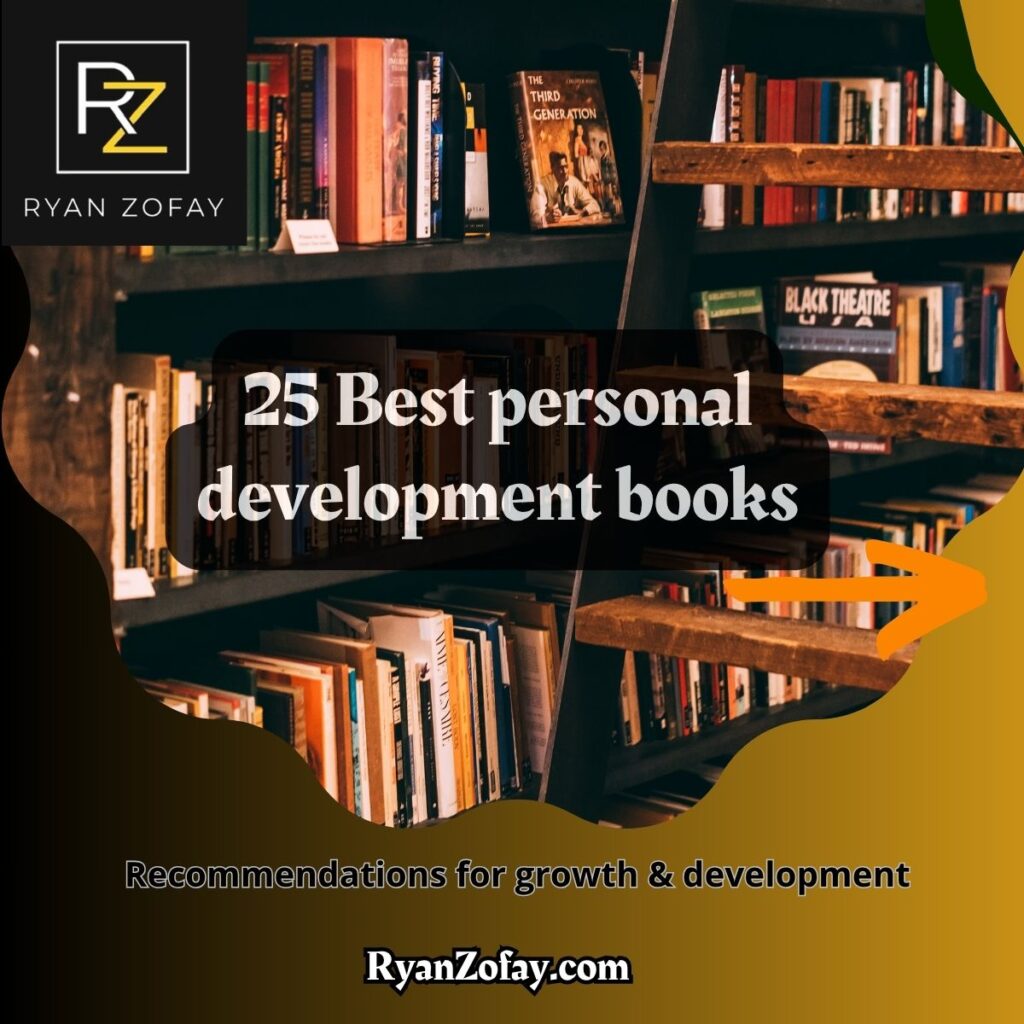
These aren’t just personal development books—they’re the cream of the crop when it comes to personal growth and development. I’ve ranked them based on their impact, popularity, and transformative power. Whether you’re looking to boost your self-esteem, improve your mindset, or unlock your full potential, there’s something here for everyone.
Looking for more of the best personal development books? Here are my personal ebooks for you to enjoy
Best Self Help Books PDF Secrets Revealed
I’m excited to introduce my personal “Best Self Help Books PDF Secrets: Roadmap to Success.” Throughout my journey from addiction and incarceration to becoming a multi-millionaire entrepreneur, I’ve discovered the transformative power of personal development books. These personal development books have been my guiding light, providing invaluable insights and strategies that have shaped my life and career. And I’ve created my own personal development books for you to enjoy.
I’ll share my hand-crafted top personal development books that can profoundly impact you and countless others. These are my best personal development books, offering practical advice for anyone looking to embark on a journey of self-improvement. Whether you’re seeking motivation, clarity, or a roadmap for personal growth and development, this collection will provide you with the tools you need.
Let’s dive into these life-changing resources and start your journey toward success!
eBook

Self Help Book
Unstoppable Mornings: Ryan Zofay’s 7-Step Ritual for Peak Performance.
- Our top self-help personal development ebook of all time.
- Resource for personal development workbooks for adults free PDF.
Price
eBook
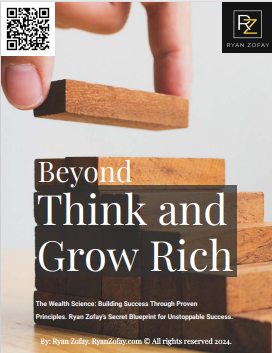
Self Help Book
Beyond Think and Grow Rich. The Wealth Science: Building Success Through Proven Principles. Ryan Zofay’s Secret Blueprint for Unstoppable Success.
- Another top free personal development eBook PDF
Price
eBook

Self Help Book
Inspire and Thrive: Essential Strategies for Women’s Self-Improvement
- A best of the best personal development eBooks.
- And a free self-help eBook PDF, too.
Price
eBook

Self Help Book
The Power of Mindset: Secrets from a Multi-Millionaire Entrepreneur
- The Millionaire Mindset Book is a comprehensive guide to unlock wealth creation.
- From Zero to Millionaire Mindset Transformation Journey.
Price
eBook
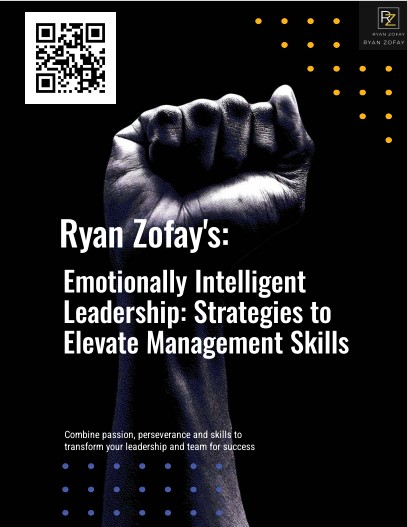
Self Help Book
Emotionally Intelligent Leadership: Strategies to Elevate Management Skills and Beyond
- The Emotional Intelligence PDF ebook is a comprehensive guide to elevating leadership & team skills.
- Master Emotional Intelligence 2.0 Book PDF: Free Guide for Leadership & Team Success
Price
eBook
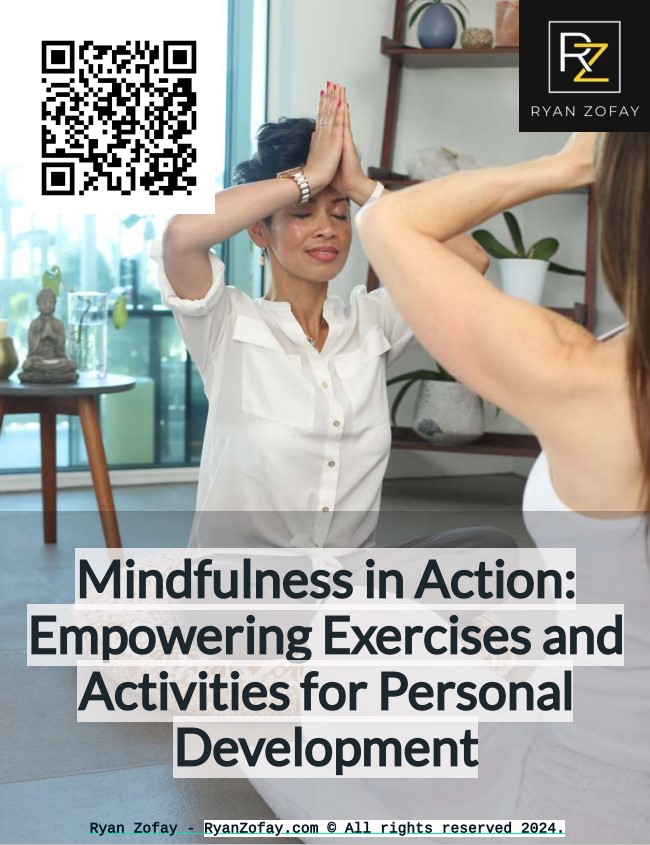
Self Help Book
Mindfulness in Action: Empowering Mindfulness Exercises & Activities for Personal Development
- Discover how to practice mindfulness regularly.
- Request free access to our mindfulness exercises PDF eBook. Uncover popular mindfulness activities PDF.
Price
Request Your Free Personal Development Books PDFs
These personal development eBooks cover a wide range of topics, including mindset shifts, habit formation, and emotional resilience. They are designed to inspire you to take action and create lasting change in your life. If you’re ready to invest in yourself and unlock your full potential, this roadmap will guide you through some of the best books on personal growth and development available today.
How I Can Help?
From overcoming addiction and personal struggles to building a multimillion-dollar business, I’ve walked the path of radical change. Now, I dedicate my life to helping others unlock their full potential and achieve extraordinary success. With over 1500 hours of professional training and a decade of experience in personal development, I’ve:
- Coached thousands of individuals through success strategies, seminars, workshops, and events.
- Delivered powerful keynote, individual development, and transformative leadership speeches to audiences nationwide.
- I authored my transformative book on personal growth and mindset, building my story brand and its lessons.
- Developed an innovative personal development school, classes, courses, and coaching programs that drive lasting change.
Unleash Your Full Growth Potential with Ryan Zofay
Are you ready to transform your life?
Discover the secrets to unlocking your true potential with Ryan Zofay, a renowned personal growth and development expert. You’ll gain the tools and knowledge to achieve your most ambitious goals through his transformative workshops and coaching programs.
What is Personal Development?
Personal development is the continuous process of improving yourself to achieve fulfillment. It involves setting goals, acquiring new skills, expanding knowledge, and cultivating a growth mindset.
Why Choose Ryan Zofay?
- Proven Track Record: Ryan has a proven history of helping individuals and businesses achieve extraordinary results.
- Holistic Approach: His programs address all aspects of personal growth, from mindset to relationships to career success.
- Expert Guidance: Benefit from Ryan’s expert coaching and mentorship.
- Customized Plans: Receive personalized guidance to achieve your specific goals.
Our Programs:
- 2-Day Intensive Workshops: Immerse yourself in a transformative experience to accelerate your growth.
- Powerful Coaching for Growth & Development: Receive tailored guidance and support from Ryan.
- In-person Classes: Learn at your own pace with flexible and accessible programs.
Sample Development Goals:
- Improve communication skills
- Enhance leadership abilities
- Build stronger relationships
- Boost confidence and self-esteem
- Achieve financial freedom
- Find your life purpose
Don’t settle for mediocrity. Invest in yourself and unlock your full potential. Join Ryan Zofay on this incredible journey of self-discovery and transformation.
Ready to take the next step?
Define your vision for personal growth and development, establish meaningful goals, and forge a path toward a more fulfilling and purpose-driven life. Join Ryan Zofay on a transformative journey of self-discovery and watch yourself evolve into the best version of yourself!”
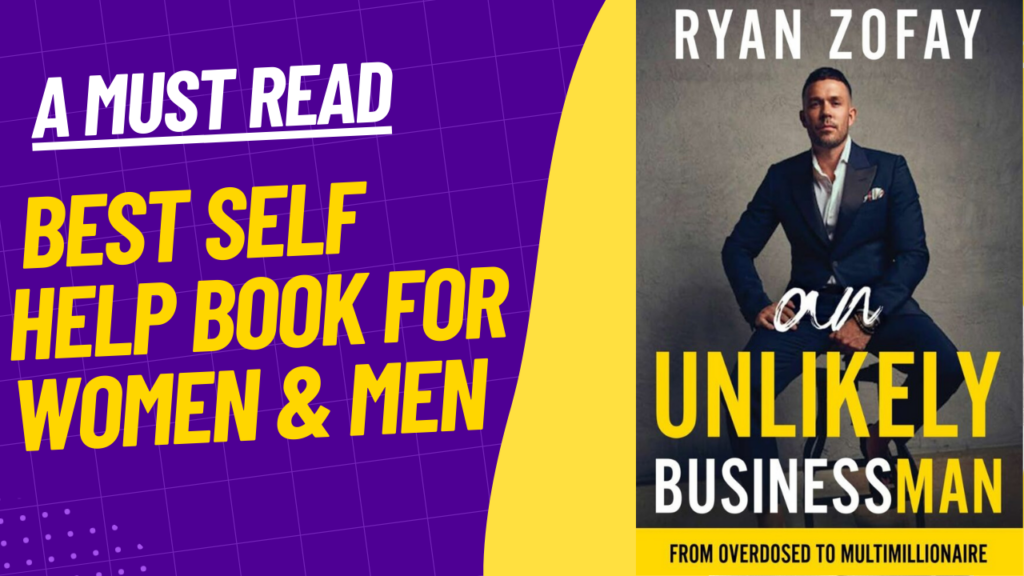
Unlock Your Full Potential with Ryan Zofay’s Development Blueprint!
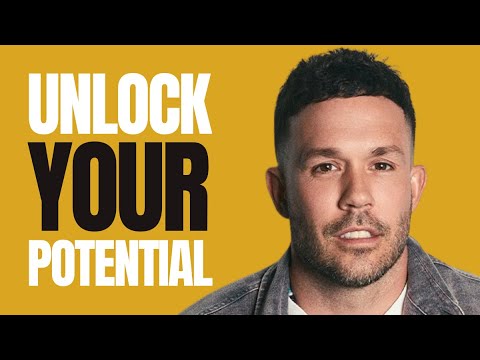
As we’ve explored the five key areas of individual development – mental, emotional, physical, social, and spiritual – it becomes clear that actual growth and fulfillment come from nurturing all aspects of our being. Each area is interconnected, influencing and supporting the others in a delicate balance that shapes our overall well-being and success.
Explore a range of development goals tailored for professional success, including improving time management, enhancing communication skills, fostering leadership qualities, and achieving work-life balance. With Ryan’s guidance, you can achieve personal growth and development goals that align with your aspirations.
Define your path to success with a personalized personal development plan that encompasses actionable steps, self-improvement strategies, and measurable objectives. Whether you aim to boost productivity, cultivate resilience, or nurture creativity, Ryan Zofay’s proven methodologies offer a roadmap to elevate your professional and personal life.
Embrace the essence of personal growth through continuous learning, self-reflection, and intentional actions. Ryan empowers individuals to strive for excellence, set ambitious individual development goals, and realize their full potential.
Personal Development Event Testimonial

Takeaways
As a personal development coach, I’ve observed that the most profound transformations occur when individuals commit to growth across all five areas. It’s not about perfection in each domain but consistent, intentional progress.
- Mental Development: Cultivate a growth mindset. Challenge your thoughts, embrace lifelong learning, and view obstacles as opportunities for growth. Your mind is your most powerful tool – sharpen it daily.
- Emotional Development: Emotional intelligence is the cornerstone of personal and professional success. Learn to understand, express, and manage your emotions effectively. This skill will enhance every aspect of your life.
- Physical Development: Your body is the vehicle through which you experience life. Prioritize your health through regular exercise, proper nutrition, and adequate rest. A healthy body supports a vibrant mind and spirit.
- Social Development: We are inherently social beings. Invest in meaningful relationships, improve your communication skills, and surround yourself with individuals who inspire and support your growth.
- Spiritual Development: Connecting with something greater than yourself, regardless of your beliefs, provides purpose and perspective. This could be through traditional religious practices, meditation, or simply spending time in nature.

Individual development is a journey, not a destination. Embrace the process, celebrate small victories, and be patient with yourself. The key is to make consistent, minor improvements in each area over time.
As you progress on your unique development journey, you’ll find that growth in one area often catalyzes growth in others. For example, improving physical health can boost mental clarity and emotional stability. Similarly, developing your social skills can open up new mental and spiritual growth opportunities.
Lastly, I encourage you to regularly reflect on your progress and adjust your goals as needed. Individual development is a dynamic process, and what serves you today may change as you evolve. Stay flexible, curious, and, most importantly, commit to becoming your best version.
Your potential is limitless. By focusing on the five areas of personal development, you’re not just improving yourself – you’re transforming your life and positively impacting the world around you. Embrace the journey, and watch your life unfold beautifully and unexpectedly.”
Discover the Life-Changing Impact of Ryan Zofay’s Seminars & Events
Experience the power of transformation through the eyes of those who’ve lived it. In this compelling testimonial video, hear from actual participants of Ryan Zofay’s Personal Development and Growth Seminars and Events. Witness firsthand accounts of:
- Breakthrough moments that shattered limiting beliefs
- Practical strategies that led to tangible life improvements
- The supportive community that fosters lasting change
- How Ryan’s unique approach ignites personal and professional growth
From struggling entrepreneurs to individuals seeking purpose, these testimonials showcase the diverse ways Ryan’s seminars have touched lives. Learn how his teachings on mindset, goal-setting, and emotional mastery have empowered attendees to:
- Skyrocket their confidence
- Achieve ambitious goals
- Transform relationships
- Unlock their true potential
Chart your path to self-improvement by uncovering your personal development goals that can transform your life now. Join us today.
Resources
Welcome to your development journey! As a life coach, I’m passionate about helping individuals unlock their full potential and achieve their goals. I aim to provide you with the resources and tools to embark on a transformative journey of self-discovery and growth.
In this section, you’ll find various resources to help you develop a strong mindset, set meaningful objectives, and cultivate a fulfilling life. From practical guides and worksheets to inspiring videos and expert insights, there’s something here for everyone.
Whether you want to enhance your career, improve your relationships, or live a more fulfilling life, these resources can provide valuable guidance and support. Explore the topics below and discover the tools to help you achieve your personal development goals.
Let’s embark on this journey of growth and transformation together!
- Guide to Personal Development Goals for Work Examples, Sample Worksheet, Strategies & Tips
- Best Life Coaches Personal Growth Videos. My best life coaching programs’ video shorts.
- Learning to Live in the Moment for Personal Growth
- Are You Working on Personal Development?
- Ryan Zofay’s Ultimate Executive Coaching Services. Elevating Leadership Executive Function Skills.
- Developing a Daily Routine PDF Secrets Revealed. Easy Planner & Templates to Develop & Stick to a Success Regimen.
- 101 Best Growth Mindset Books: Carol Dweck to Millionaire, Warrior, Gorilla, Positive, Abundance, Money, Shift, Invincible & entrepreneurial Perspectives.
- Top 10 Mindset Entrepreneur Self-Limiting Beliefs Guide to Propel Your Growth
- Top 5 Easy Steps on How to Practice Mindfulness To Achieve Bliss & Growth
- Best Self Help Books PDF Downloadable eBooks. Free Curated eBooks for Personal Development, Life and Business Coaching.
- Ryan Zofay & David Traub Masterclass. Spark the shift to redefine your future.
- Uncover How to win friends and influence people in 5 days. Master Speaking & Influence To Help Close Deals.
- Guide to Self Improvement Strategies, Tips, Laws, Setting Goals, Journaling, Courses & Classes



Pingback: Francis
Pingback: Angie
Pingback: Jenifer
Pingback: Victor
Wow, Ryan! Your time management hacks are amazing! I’m especially intrigued by the concept of timeboxing and batching tasks. As someone who constantly feels overwhelmed, I can’t wait to try these techniques. What are your recommendations for handling unexpected interruptions that derail our schedules?
I appreciate your holistic approach to personal development, Ryan. Focusing on both physical and mental well-being feels crucial. I’ve already implemented your sleep hygiene tips, and I’m feeling more energized! Do you have any suggestions for incorporating mindfulness practices into a busy daily routine?
Pingback: Andie
Pingback: Are You Working on Personal Development | Ryan Zofay
Ryan, your insights on authentic leadership truly resonated with me. Leading with empathy and inspiring others feels so much more fulfilling than traditional power dynamics. I’m curious, how can someone in a non-leadership position still cultivate these leadership qualities and influence their sphere of influence?
This is fantastic, Ryan! The power of surrounding yourself with positive and supportive individuals can’t be overstated. I’m actively seeking out growth-oriented communities, and it’s already making a difference. Do you have any advice for someone who feels hesitant to put themselves out there and connect with new people?
Ryan, your breakdown of the confidence cycle was super helpful! It’s clear that confidence comes from taking action and achieving small wins. I’m starting with your suggestion of creating a daily “win” list. What are some additional strategies you recommend for overcoming self-doubt and building unshakeable confidence?
Learning about managing personal finances is such a valuable skill, Ryan. Your budgeting tips and emphasis on financial independence are inspiring. I’m looking forward to exploring your recommendations for building passive income streams. Do you have any suggestions for someone just starting out on their financial literacy journey?
I think there should be a balance for all these 5 areas. There can’t be one ahead of each. Do you agree?
All of these are very important. All of these aspects needs to be balanced.
While many are quite aware of the Physical development, some may forgot that it’s quite important to develop your mind sd well. Thanks a lot for pointing out all these and I will keep that in mind.
Well said. Can’t agree with you more. Thanks for sharing your post
I am currently working on my physical development. After some of the health issues I have had and the pandemic, I am trying to get myself back into shape. Not as easy as it was a few years ago! Everyone will always have parts of their personal development to work on.
We all have room for improvement, these areas are a great reminder to improve everyday.
This is such a great guide. It’s important that we never stop trying to be the best that we can be. There’s always room to grow and evolve.
My spiritual life is lagging behind, so much, these days! It’s one area I need to work on.
Personal development is a lifelong process. Without continuous development, we stagnate in life.
These are indeed areas that we need to focus on for holistic development. Social has always been a struggle for me but I do try to work on it.
I need to work on emotional development. There are times when I act impulsively and then regret my actions later on. I think all these areas should be worked on at the same time so that we can all become better versions of ourselves.
Thank you for this blog post. I was looking for something like that because I have a desire to change my life. Now I’m ready to set a plan and start small steps.
This was a great read. I think it’s important for people to never stop trying to make themselves the best possible versions of themselves that they can be.